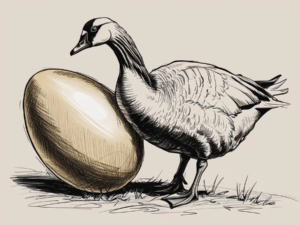Overview:
How well do you know basic insurance terms? Insurance can seem complicated, with dozens of terms and insurance-specific words to wade through. Understanding the vocabulary of insurance will ensure that you have the right coverage for your needs. The intricacy of insurance is one of several reasons why having an insurance advisor is useful.
In light of this, we thought we’d put together a collection of basic insurance terms and give you some straightforward definitions. If you’ve missed a few terms along the way, this is a perfect opportunity to catch up.
1. Insurance
In its simplest form, insurance is a contract you enter into with another party (in this case, an insurance company) to protect you from financial loss during a period of time. As specified in the contract, the policy owner will receive a settlement if you experience a loss in exchange for a recurring fee, known as a premium.
2. Fiduciary
A fiduciary is a person or organization that manages financial matters on behalf of someone else. A fiduciary isn’t a salesman. Fiduciaries have a legal and moral obligation to act in the best interest of you–their client–in an unbiased way. They may not advise based on their own financial interest. It’s the responsibility of your insurance advisor to give you the most thorough advice you need to make decisions.
3. Replacement Costs & Actual Cash Value
Just as the name implies, replacement cost insurance covers the amount of money needed to replace the item that was insured. However, there are a few points to consider because it’s not as straightforward as you may think. There is a difference in cost between replacement cost and actual cash value.
For instance, what is the replacement cost of a piece of equipment that is 2 years old versus one that’s 10 years old? Is the insurance company obligated to pay for brand-new equipment? Or does it pay for one in comparable condition at the time it becomes a loss?
Replacement cost means that the insurance company will reimburse the policyholder with the funds necessary to replace the damaged machine. Actual cash value (ACV) means that the policyholder is reimbursed for whatever the machine is worth at the time of the accident. In insurance jargon, ACV is calculated as the purchase price, less depreciation.
Both are viable options for companies. However, if businesses want to protect their current assets as well as guard against future financial burdens, replacement cost coverages are the way to go.
4. Deductible
A deductible is a predetermined amount of money that you pay out of pocket before the insurance company pays the insured amount following your claim. The amount of a deductible typically varies. Generally, a higher deductible means premiums are less expensive, while more expensive premiums have a lower deductible.
In the event that you need to file a claim on your insurance policy, what is your financial reserve? It’s something to consider before choosing your deductible.
5. Per-occurrence
Per-occurrence is an excellent example of the precision of insurance terminology. A per-occurrence policy has significant implications for you or your business.
As an example, let’s say an equipment operator damaged an excavator they rented by accidentally flipping it onto its side. The overturn caused damage to the cab, the side panels, and the windows. If a per-occurrence policy were in place, the renter would only have to pay one deductible, even though multiple areas were damaged. While the deductibles could be higher in “per occurrence” policies, that cost is money well spent.
Questions?
If you have questions about insurance for equipment dealers or renters, reach out to us!
Contact Us: Website | Email: info@jtbatesgroup.com | Phone: (877) 595-7850




